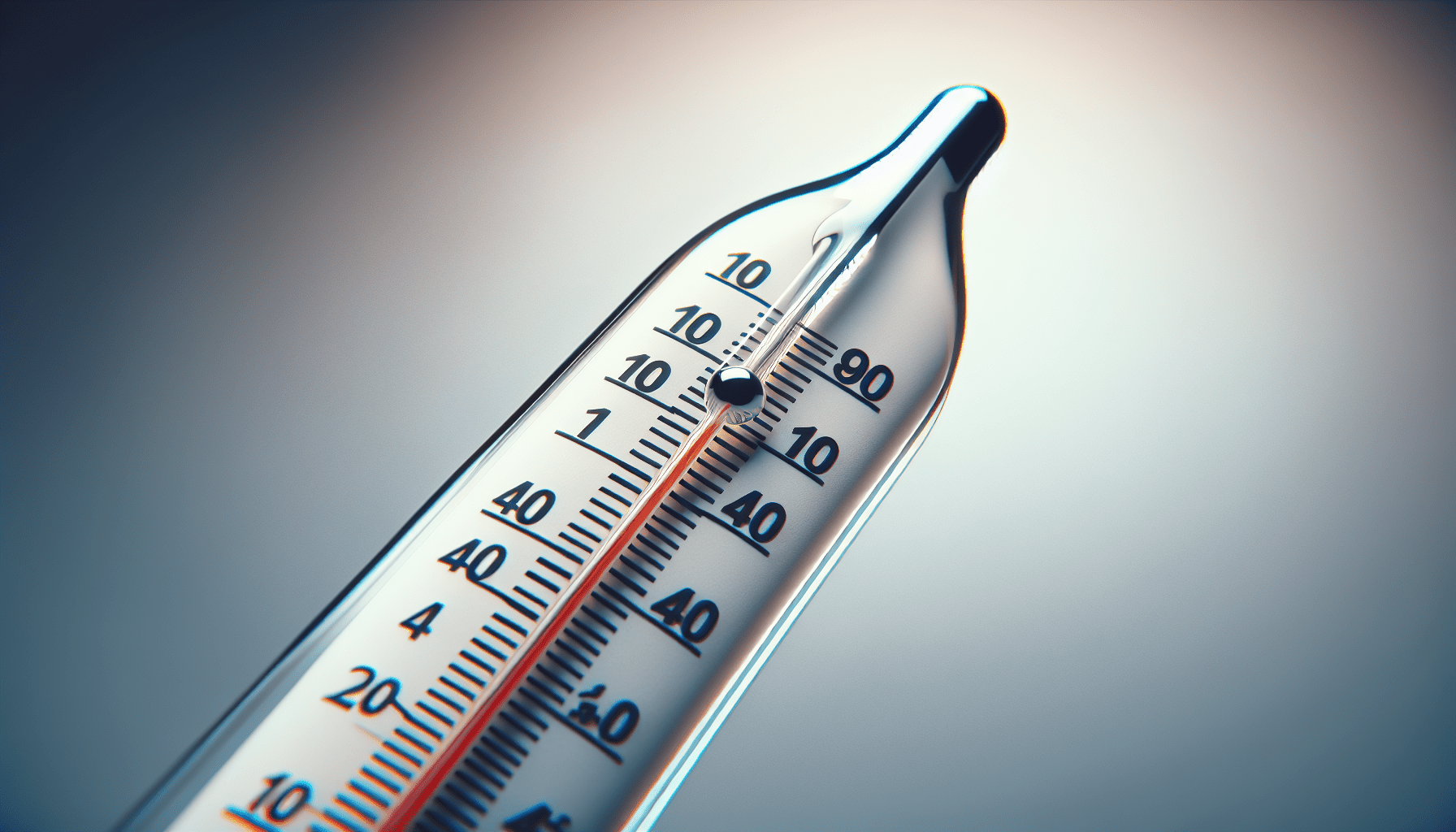Having a high fever can be quite uncomfortable, but more importantly, it can also be a cause for concern. In this article, we will explore the potential complications that can arise from a high fever. Discover the possible risks and complications you should be aware of to better understand the impact of a high fever on your health.
Complications of High Fever
High fever can be a cause for concern, as it is often a sign that the body is fighting off an infection or another underlying condition. While fever itself is not usually harmful, complications can arise if the fever is left untreated or if it persists for a prolonged period of time. In this article, we will explore the various complications that can occur as a result of high fever, and how they can impact your overall health and well-being.
Febrile seizures
One of the most alarming complications of high fever, especially in children, is the occurrence of febrile seizures. These seizures usually last for a brief period of time and can cause a child to lose consciousness and experience muscle convulsions. While febrile seizures can be frightening to witness, they are generally not harmful and do not cause long-term damage. However, it is important to seek medical attention if your child experiences a febrile seizure, as it may indicate an underlying issue that needs to be addressed.
Dehydration
Another complication that can arise from high fever is dehydration. When you have a fever, your body’s temperature rises, causing you to sweat and lose fluids. If these fluids are not replenished promptly, it can lead to dehydration. Symptoms of dehydration include dry mouth, increased thirst, fatigue, and dark urine. To prevent dehydration, it is important to drink plenty of fluids, such as water or electrolyte solutions, when you have a fever.
Hallucinations and confusion
In some cases, high fever can lead to hallucinations and confusion. This is especially true in individuals who already have underlying neurological conditions or who are experiencing severe infections. The elevated body temperature can affect the functioning of the brain, leading to alterations in perception and cognition. If you or a loved one is experiencing hallucinations or confusion along with a high fever, seeking medical attention is crucial to ensure proper evaluation and management.
Organ damage
Prolonged high fever can potentially cause damage to various organs in the body. The elevated body temperature can put stress on the heart, kidneys, liver, and other vital organs, leading to impairment of their normal function. This is why it is important to treat and manage high fever promptly, to minimize the risk of long-term organ damage.
Respiratory distress
High fever can also result in respiratory distress, especially in individuals who already have respiratory conditions or weakened immune systems. The inflammation caused by the fever can affect the airways, making it difficult to breathe and leading to shortness of breath. If you are experiencing respiratory distress along with a high fever, it is crucial to seek immediate medical attention.
Increased heart rate
Another complication that can occur with high fever is an increased heart rate. When your body temperature rises, your heart needs to work harder to pump blood throughout your body. This increased workload can put strain on the heart and potentially lead to cardiovascular issues. It is important to monitor your heart rate and seek medical attention if it becomes excessively high or irregular.
Brain dysfunction
As mentioned earlier, high fever can affect brain function and lead to symptoms such as confusion and hallucinations. In severe cases, it can also cause more serious brain dysfunction, including seizures or even coma. If you or someone you know is experiencing significant changes in mental functioning along with a high fever, it is important to seek immediate medical attention.
Bacterial or viral infections
While high fever is often a symptom of an underlying infection, it can also lead to complications related to the infection itself. Bacterial or viral infections can cause inflammation and damage in various tissues and organs, further worsening the overall condition. It is important to receive proper treatment for the underlying infection to prevent complications from occurring.
Hypotension
In some cases, high fever can lead to a drop in blood pressure, known as hypotension. This can occur due to the expansion of blood vessels and the body’s natural response to cool itself down. Hypotension can cause symptoms such as dizziness, lightheadedness, and fainting. If you experience these symptoms along with a high fever, it is essential to seek medical attention to prevent any further complications.
Febrile delirium
Febrile delirium is a rare but serious complication that can occur with high fever, particularly in children. It is characterized by extreme restlessness, confusion, and agitation. Febrile delirium requires immediate medical attention, as it can be a sign of a severe underlying infection or other medical condition that needs to be addressed promptly.
In conclusion, while a high fever itself is usually not harmful, it can lead to a variety of complications if left untreated or if it persists for an extended period of time. Febrile seizures, dehydration, hallucinations and confusion, organ damage, respiratory distress, increased heart rate, brain dysfunction, bacterial or viral infections, hypotension, and febrile delirium are some of the potential complications associated with high fever. It is important to monitor your fever and seek medical attention if necessary, to prevent any further complications and ensure your overall health and well-being. Remember to stay hydrated, rest, and follow the guidance of healthcare professionals for appropriate treatment and management of your high fever.
